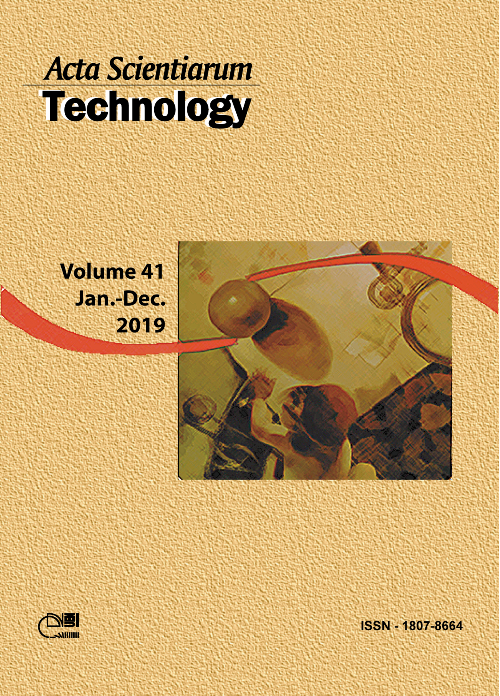Optimizing production in machining of hardened steels using response surface methodology
DOI:
https://doi.org/10.4025/actascitechnol.v41i1.38091Palavras-chave:
design of experiments, response surface methodology, production optimizationResumo
This paper presents the modeling of tool life and surface roughness for machining AISI 52100 steel with a hardness of 50 HRC through Design of Experiments and Response Surface Methodology (RSM) with a view to enhance the quality and productivity. Knowing that the tool life and surface roughness are factors that influence the quality of the product, this study used the statistical tool of RSM in the search of factors that better determine optimal models. The models obtained prioritize the product quality and the cutting productivity. Results from Analysis of Variance demonstrated that the mathematical models elaborated allowed the prediction of surface roughness parameters´ values and tool life (T) with a precision of 95% confidence interval and a coefficient of determination above 94%. The wiper geometry of the tool led to the achievement of low average surface roughness (Ra) ranging from 0.2 to 0.4 µm with relatively high advances (0.2-0.4 mm rev-1) and maximum height of the profile surface roughness (Rt) in the range of 1.4 to 2.8 µm, without making use of the cutting fluid.
Downloads
Downloads
Publicado
Como Citar
Edição
Seção
Licença
DECLARAÇíO DE ORIGINALIDADE E DIREITOS AUTORAIS
Declaro que o presente artigo é original, não tendo sido submetido í publicação em qualquer outro periódico nacional ou internacional, quer seja em parte ou em sua totalidade.
Os direitos autorais pertencem exclusivamente aos autores. Os direitos de licenciamento utilizados pelo periódico é a licença Creative Commons Attribution 4.0 (CC BY 4.0): são permitidos o compartilhamento (cópia e distribuição do material em qualqer meio ou formato) e adaptação (remix, transformação e criação de material a partir do conteúdo assim licenciado para quaisquer fins, inclusive comerciais.
Recomenda-se a leitura desse link para maiores informações sobre o tema: fornecimento de créditos e referências de forma correta, entre outros detalhes cruciais para uso adequado do material licenciado.



















